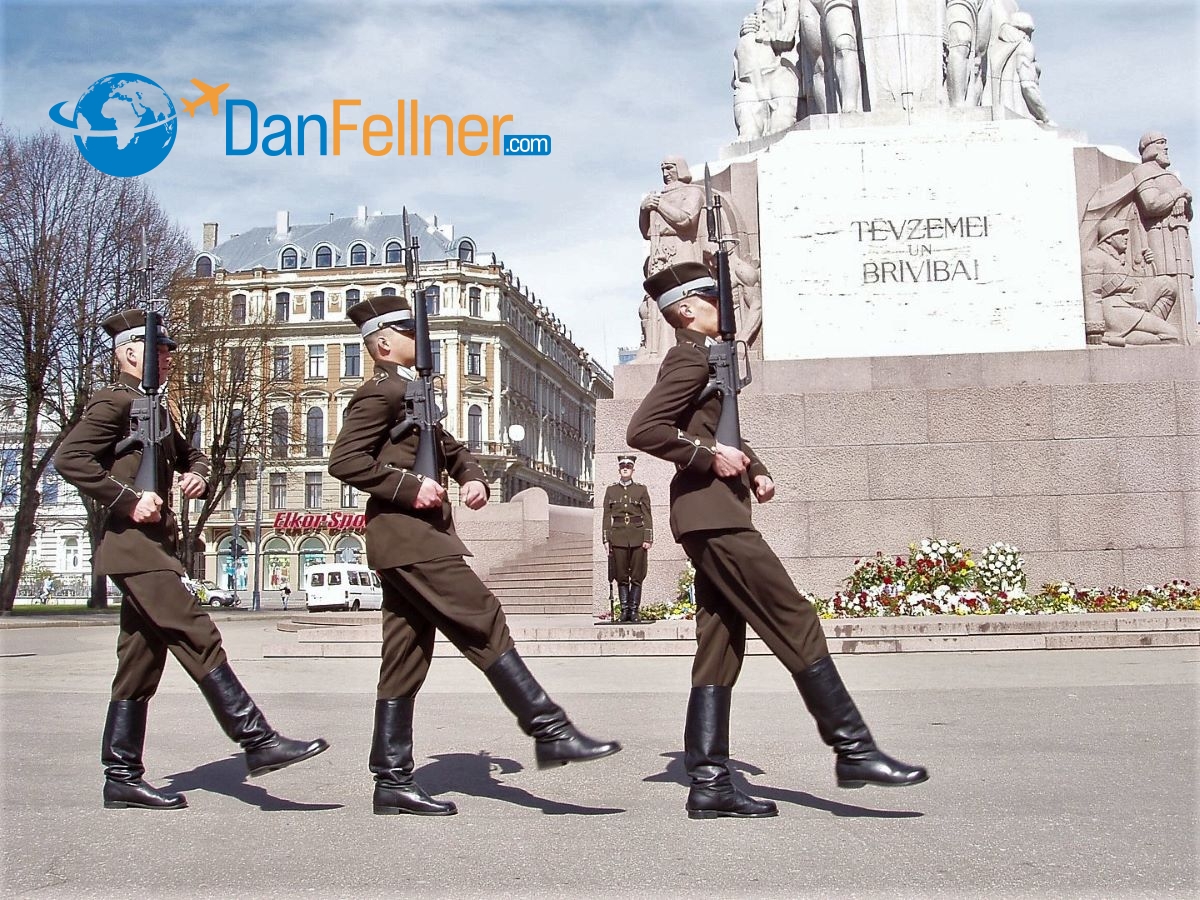Fulbright Scholar Program offers opportunity to teach overseas
Public Relations Tactics Magazine – August 2003
It was the first day of the semester at the University of Latvia and I arrived promptly for my opening lecture in a class called “Public Relations Principles.” I had been rehearsing my introductory comments for days and was pleased that a large group of students was in the room as I arrived.
Labrit, I began, wishing the class a “good morning” in their Latvian language. Then I introduced myself and began explaining why an American had come all the way to a small country in northeastern Europe to teach.
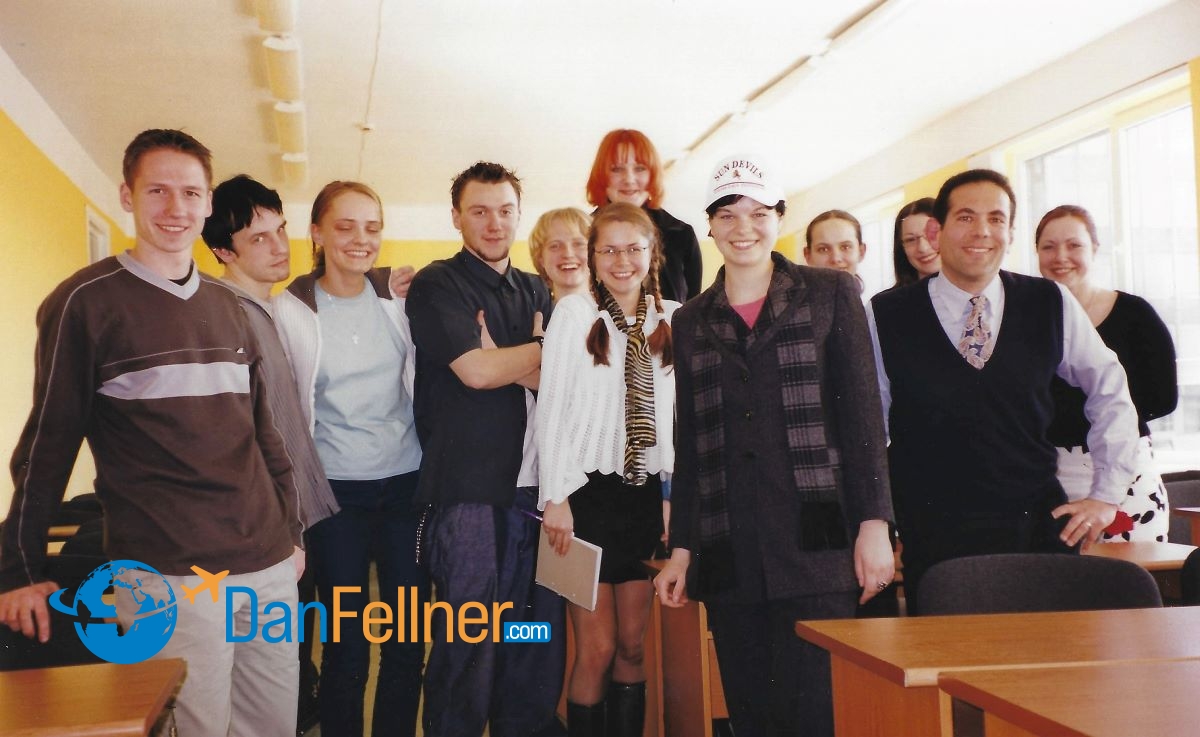
The author (right) with his PR class at the University of Latvia. Wearing the ASU Sun Devils cap is Aiva Rozenberga, the Latvian president’s press secretary.
“I’m here through the U.S. government’s Fulbright Scholar Program,” I told the class. “The Fulbright program is all about building bridges between America and other peoples around the world. While I may be the teacher, I expect to learn as much or more from you as you learn from me.”
As I looked around the room, I saw several students nodding and smiling. I imagined Sen. J. William Fulbright, who created the program immediately after World War II to improve America’s relations abroad, smiling down from the heavens above. I was on a roll.
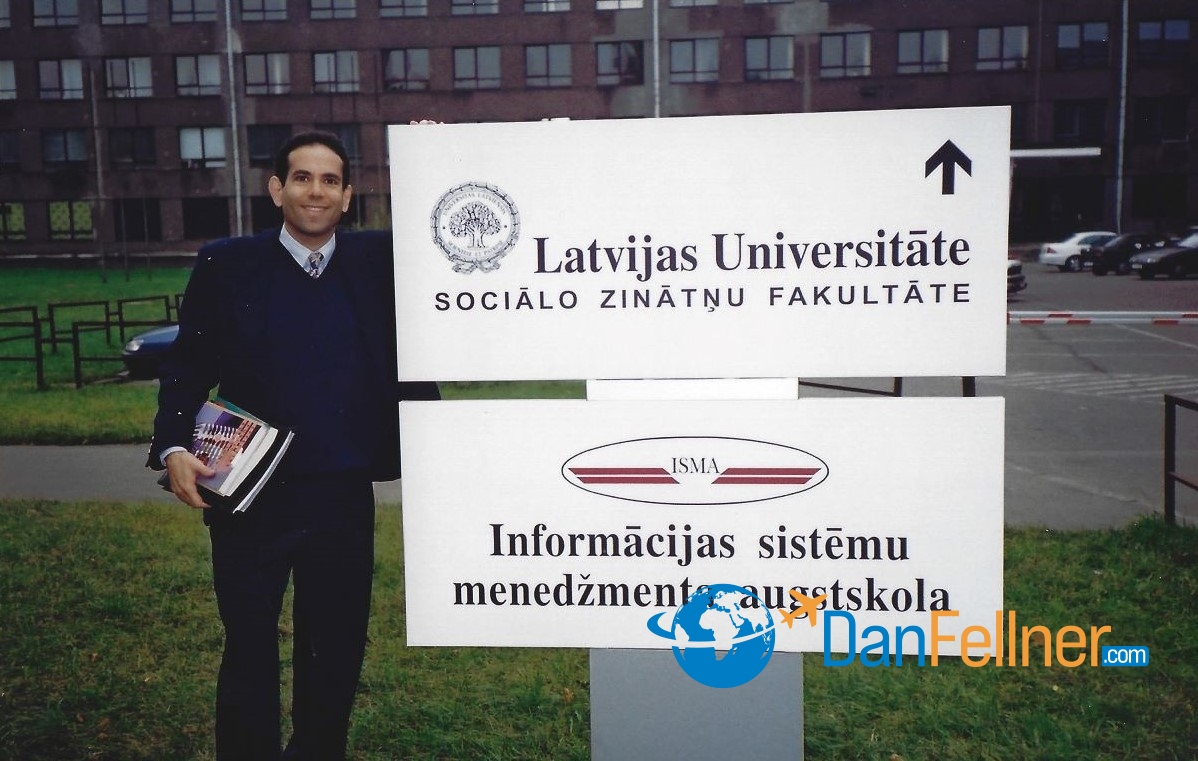
The author at the University of Latvia, where he taught journalism for three semesters as a Fulbright Scholar.
Just then a hand went up from a student in the back of the room. “That’s nice,” she said. “But this is a class in German literature.”
It was not the auspicious start I had wanted. As it turned out, two classes had been assigned to the same classroom at the same time. It’s not an uncommon occurrence in Latvia, as course schedules and student registration are not computerized. It took three weeks – and moves to two other classrooms — before it all got straightened out.
Administrative snafus aside, teaching abroad proved to be one of the most fascinating and fulfilling experiences of my professional life. My opening remarks may have been delivered to the wrong class, but what I said turned out to be true. I did learn so much from my three-semester stint in Latvia and believe I became a better teacher and PR practitioner in the process.
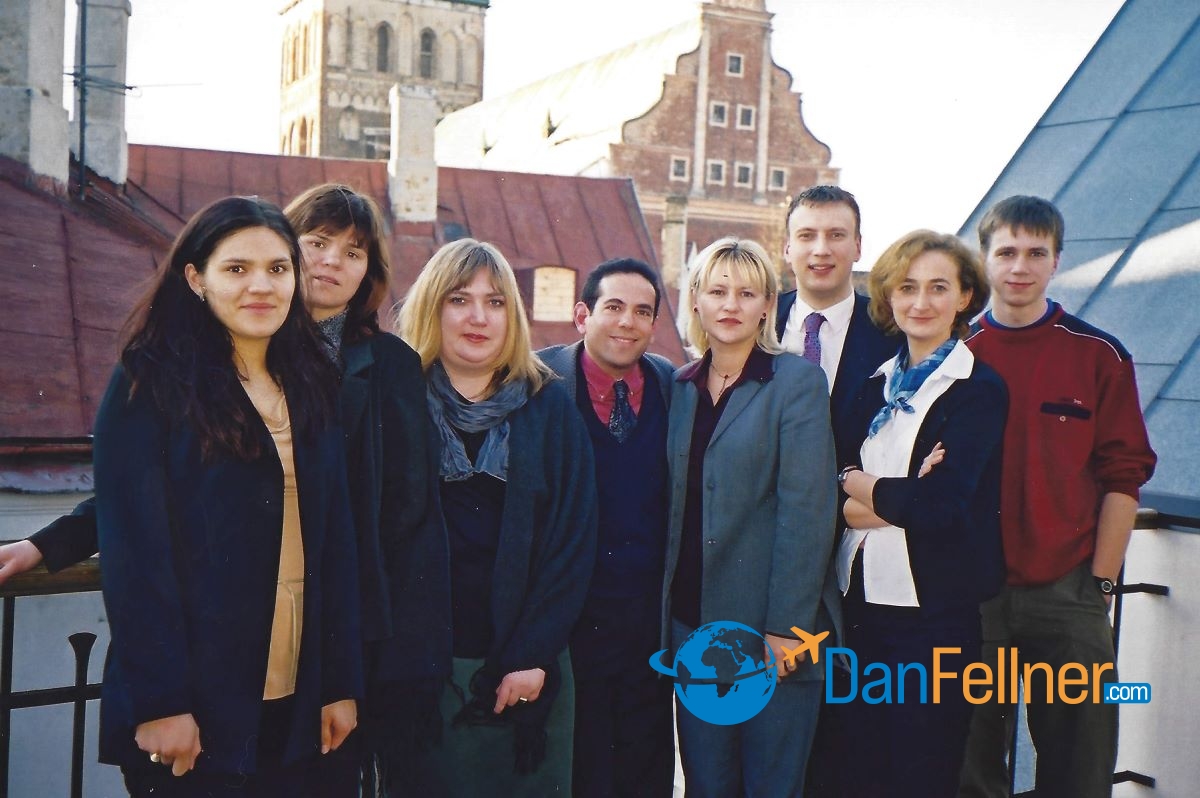
The author (center) following a training program at a Riga public relations firm called Consensus PR.
After 50 years of Soviet occupation, Latvia regained its independence just a dozen years ago and the field of public relations there is still very much in its infancy. I found the students and working professionals to be welcoming, eager to learn and dedicated to elevating the status of their field.
As in America, a majority of PR practitioners in Latvia are women. In fact, one of my PR classes had 42 students, all of whom were women. Many of the top PR practitioners in the country are women, including Aiva Rozenberga, the Latvian president’s press secretary, who visited my class as a guest speaker.
Because the field of PR is so new in Latvia, most of its practitioners are quite young. Rozenberga is a good example. At just 26, she holds the country’s most visible PR position and has been in the job for four years. And it’s much easier for students to get working experience in the field than it is back home. This added much to class discussions, as students could share their real-life experiences.
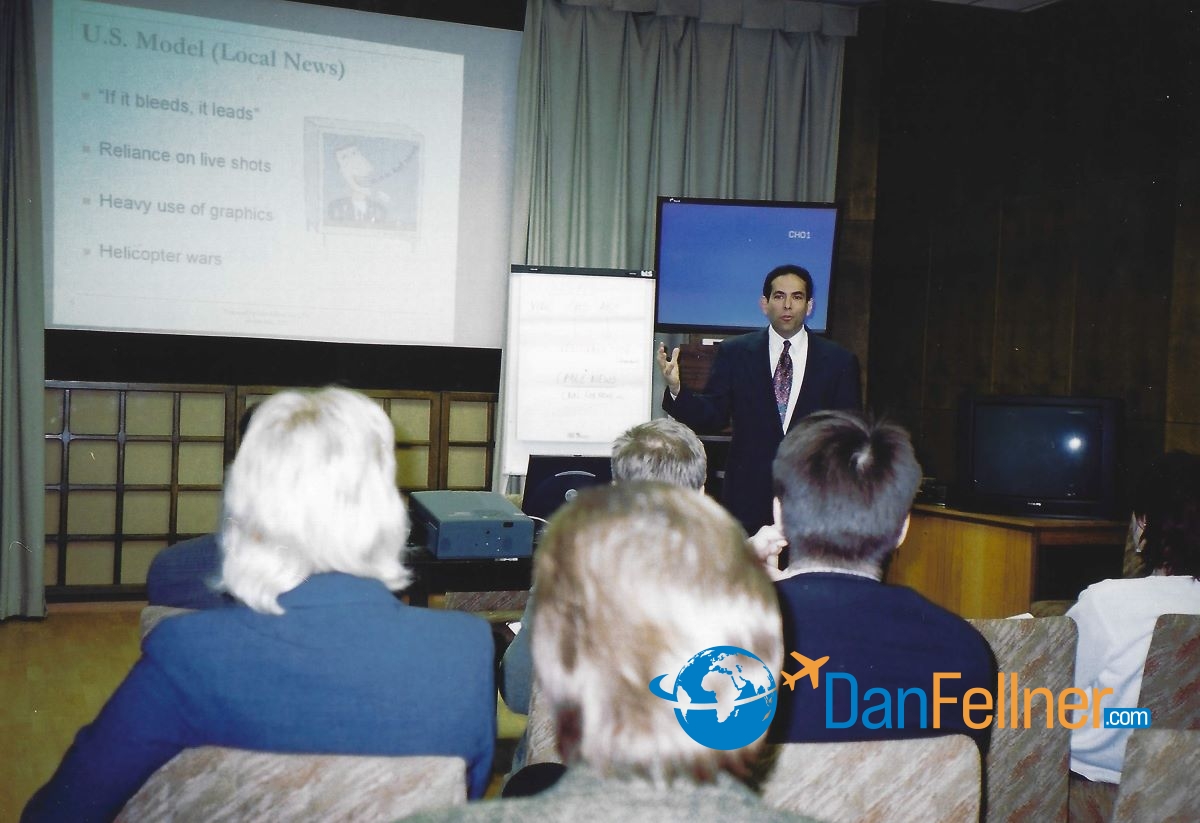
Conducting a training program for journalists at Latvijas Televīzija (LTV), Latvia’s state-owned television network.
Salaries, though, are extremely low. Most journalists and PR practitioners earn just a few hundred dollars a month. And while the cost-of-living is lower in Latvia than in the United States, it’s not that much lower. Not surprisingly, students told me of instances they had heard about in which journalists accepted bribes offered by PR firms to write positive stories about their clients.
I taught courses in PR and broadcast journalism at two different universities in Riga – Latvia’s capital and largest city — and conducted guest lectures at two other colleges, including one in neighboring Lithuania.
Despite being warned that the students sit in class stone-faced and silent – a common stereotype of Eastern Europeans — I found them to be responsive and participative. My courses were conducted in English, which made it a bit of a struggle for a few students, but everyone was able to speak the language well enough to get by.
I especially enjoyed working with members of the professional community. I had the opportunity to conduct seminars for reporters and producers at six television stations throughout Latvia and for the staff of the second-largest PR firm in the country.
At the request of the U.S. Embassy in Riga, I also consulted with the PR staff at the Latvian Ministry of Defense. It was faced with a difficult communications challenge concerning the building of a controversial military radar installation in the eastern part of the country, an area with a large Russian-speaking population.
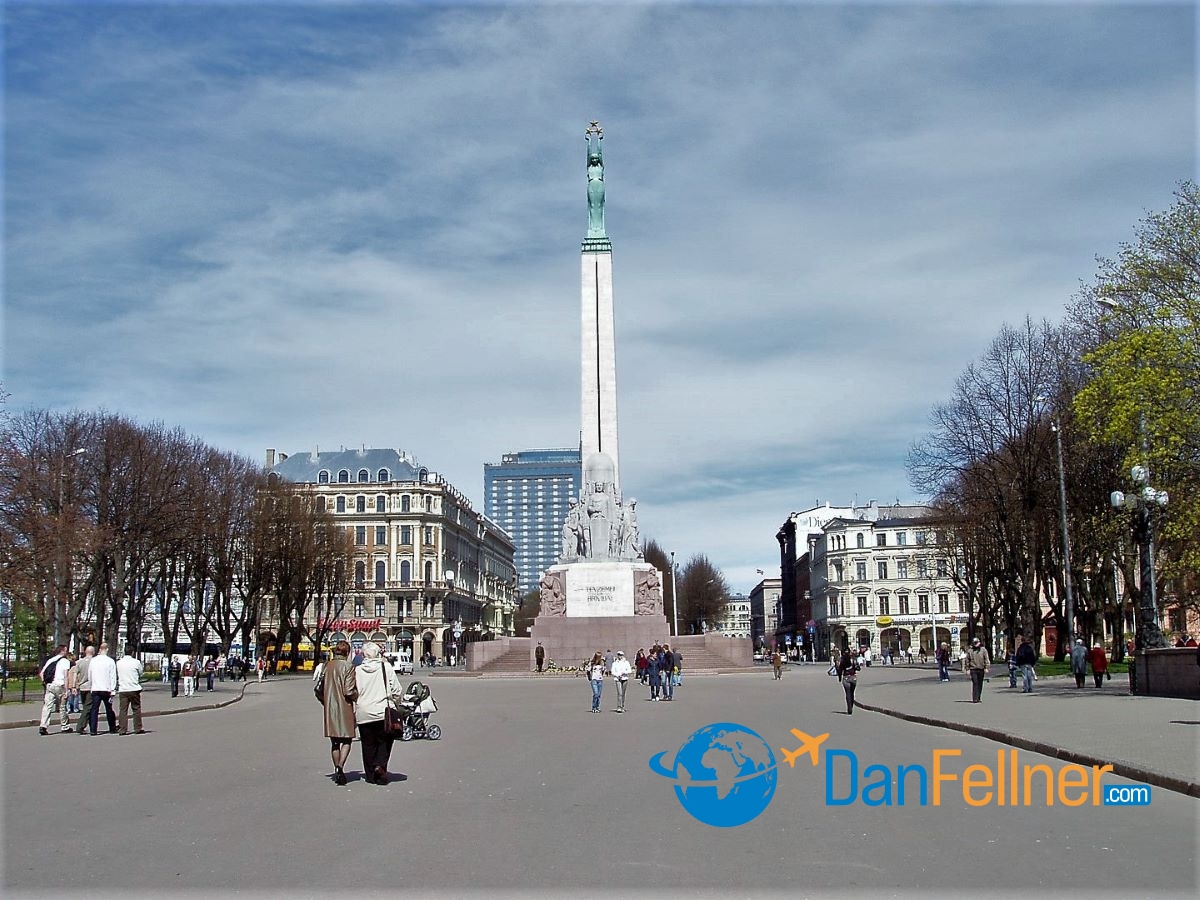
Riga’s Freedom Monument.
The issue was indicative of Latvia’s most deep-rooted problem and was all-too-familiar for government PR practitioners. Latvia is a peaceful, but divided country. About 40 percent of the country’s 2.4 million people are ethnic Russians. In general, Latvians and Russians speak different languages, attend different schools, read different newspapers, observe different religions, and vote for different political parties.
In the case of the radar unit, the Russian population felt it was going to be used by the Latvian military to spy on Russia, and furthermore, would help Latvia gain admittance into NATO, a move many Russians in Latvia oppose. (Latvia was subsequently invited to join NATO and became a member in 2004). Russian-language media in the region helped intensify opposition to the radar installation.
To circumvent the hostile media, the Ministry of Defense made its case directly to the people in the region with a direct-mail piece printed in both Russian and Latvian that explained the economic benefits the military unit would have in the impoverished area. Ultimately, opposition waned.
I enjoyed living in Riga, a charming city of about 800,000 residents with interesting architecture, lots of parks, museums and a medieval “Old Town” that is a labyrinth of cobblestone streets and buildings that are several centuries old.
I had traveled extensively before, but had never been anywhere outside the U.S. for more than two weeks at a time. As a result, I’ve had largely superficial snapshots of places I’ve been. The Fulbright grant gave me the chance to become engrossed in another culture and thoroughly learn about a part of the world that has had a rich but turbulent history.
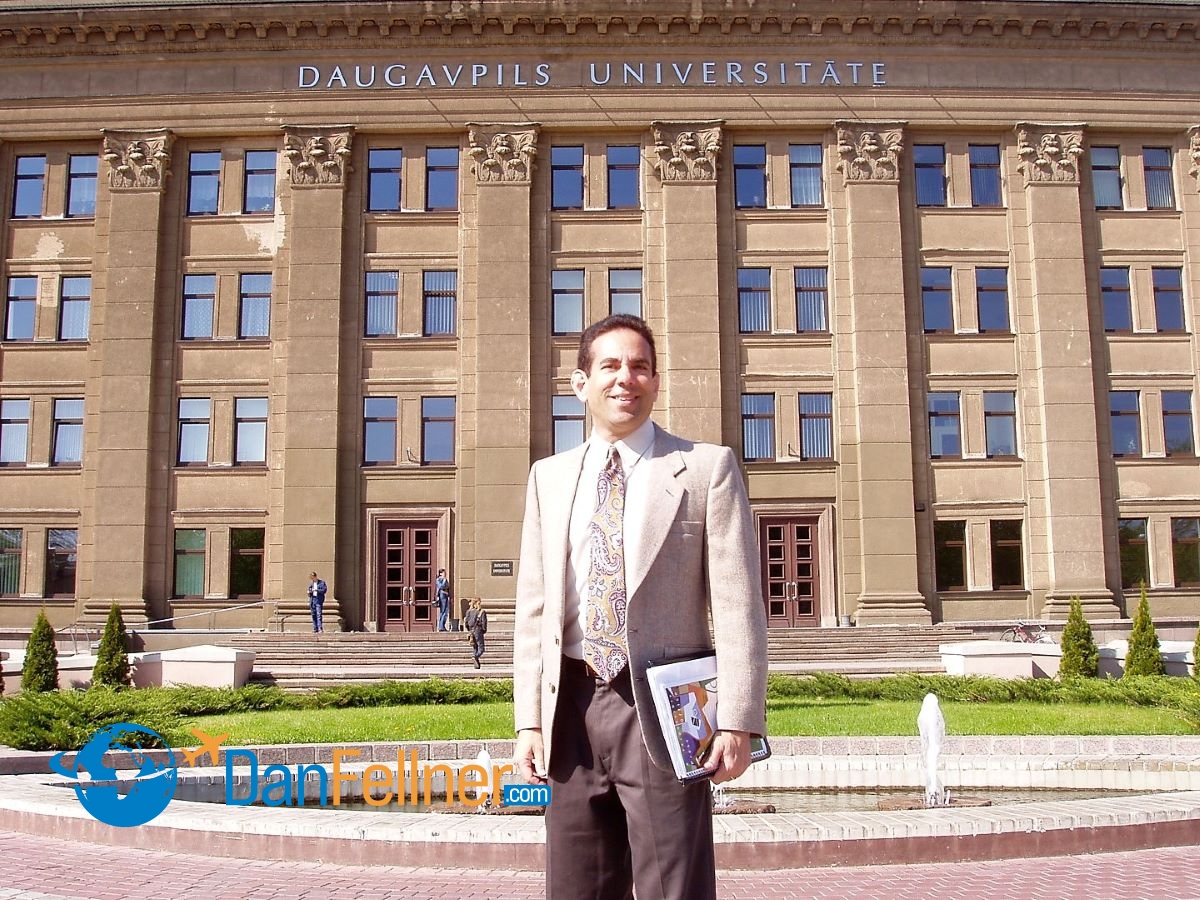
The author at Daugavpils University in eastern Latvia, where he taught public relations as a Fulbright Senior Specialist.
I had been vaguely familiar with the Fulbright program for years, but always assumed it was only for full-time academics with PhDs and a slew of scholarly publications. But there are opportunities in some countries for working professionals in public relations and journalism who want to take a mid-career break to live abroad and teach.
Fulbright grants are awarded to about 140 countries. Foreign language skills are needed in some places, but most lecturing assignments are in English. Grantees receive a monthly stipend, travel and living expenses and an allowance to buy textbooks for students who, in many cases, wouldn’t be able to afford them.
The Fulbright Scholar Program is sponsored by the U.S. Department of State. Grants are available from two months to an academic year or longer. There’s even a short-term program called the Fulbright Senior Specialists Program, which offers grants for two-to-six-weeks. I had the opportunity to return to Latvia in 2005 as a Fulbright Senior Specialist to teach a course in public relations at Daugavpils University. Daugavpils, Latvia’s second-largest city, is just 75 miles from the Russian border.
Whatever the duration of the Fulbright grant, be prepared for a personally enriching and career-broadening experience – even if you do occasionally end up in the wrong classroom.
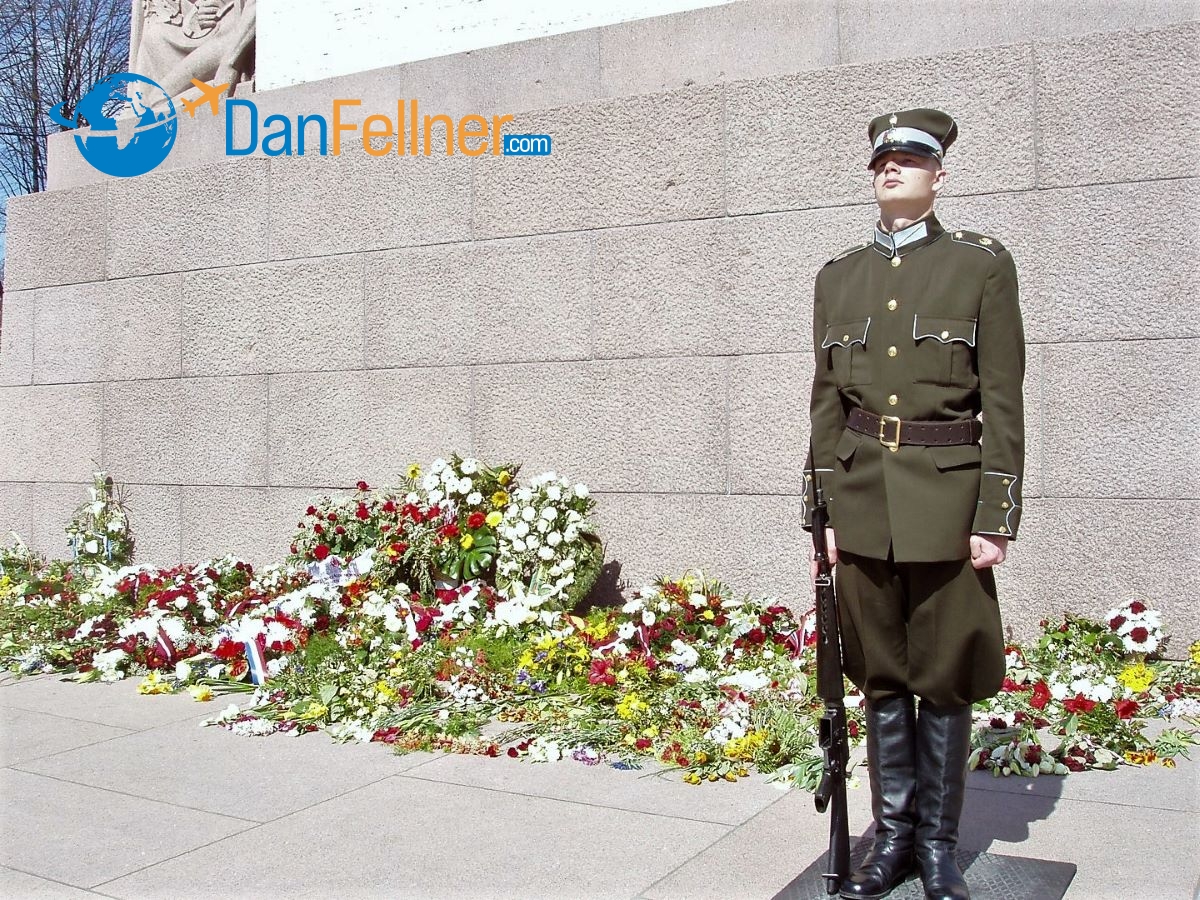
© 2009 Dan Fellner

